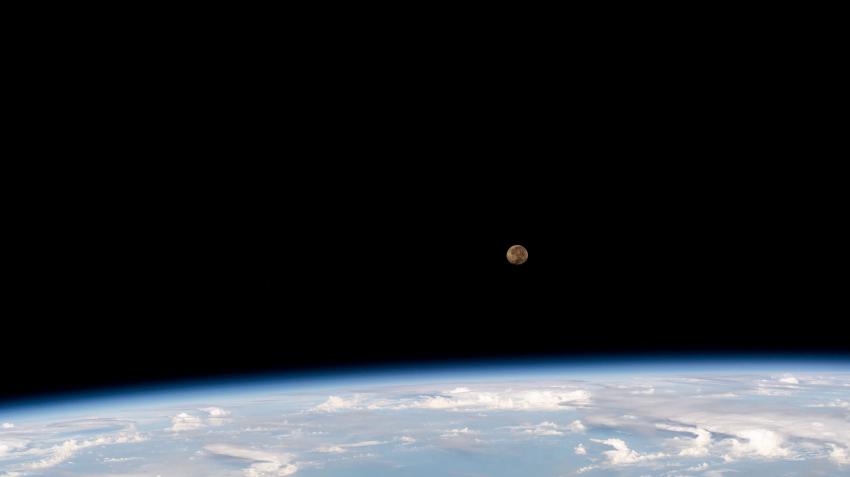The Royal Astronomical Society welcomes the launch of the Earth Space Sustainability Initiative (ESSI), announced in London today at the Global Leaders on Space Sustainability Symposium.
ESSI is underpinned by a Memorandum of Principles, signed by more than 100 organisations across the space sector, including the RAS, and opened with an endorsement from His Majesty King Charles III. A bound copy of the Memorandum of Principles was presented to Minister George Freeman of the Department for Science, Innovation & Technology at a roundtable on space sustainability at the Symposium.
These are intended to promote and facilitate international engagement with, and understanding and management of, the long-term sustainability of outer space activities, and through these efforts establish transparent Space Sustainability Principles of responsible behaviour. The signatories refer to the Secure World Foundation definition of space sustainability: “Ensuring that all humanity can continue to use outer space for peaceful purposes and socioeconomic benefit now and in the long term”, recognising the value of space for our life on Earth.
The Memorandum Annex sets out initial principles for development. These include areas of particular concern to the RAS and the global astronomical community, such as the impact of large satellite constellations on astronomy.
We therefore welcome the explicit recognition of the importance of an unfettered night sky as a central component of human culture, and the need to minimise radio and light pollution from orbiting spacecraft. The outline principles clearly acknowledge the importance of astronomy as a fundamental science, and that satellite observatories play a crucial role in both exploring the wider universe and in studying the Earth in sciences such as geophysics. The Society and many other space partners assisted the ESSI team in writing the initial document.
Professor Mike Edmunds, the President of the Royal Astronomical Society, said: “Four years ago the first launches took place to build a large satellite constellation, galvanising the global astronomical community to call for the protection of our science. I am delighted that the new Memorandum recognises our concerns. Space has enormous benefits for our planet, but we must work to ensure that the wonder of the skies and their scientific importance remain unspoilt and accessible to all."
Media contact
Gurjeet Kahlon
Royal Astronomical Society
Mob: +44 (0)7802 877700
press@ras.ac.uk
Notes for editors
The Royal Astronomical Society (RAS), founded in 1820, encourages and promotes the study of astronomy, solar-system science, geophysics and closely related branches of science. The RAS organises scientific meetings, publishes international research and review journals, recognises outstanding achievements by the award of medals and prizes, maintains an extensive library, supports education through grants and outreach activities and represents UK astronomy nationally and internationally. Its more than 4,000 members (Fellows), a third based overseas, include scientific researchers in universities, observatories and laboratories as well as historians of astronomy and others.
The RAS has working groups on satellite constellations covering optical and radio astronomy. The Society is a contributing member of the International Astronomical Union Centre for the Protection of the Dark and Quiet Sky, and is also represented (via our Deputy Executive Director) on the European Astronomical Society Working Group on Satellite Constellations.
Keep up with the RAS on Twitter, Facebook, Instagram, LinkedIn, and YouTube


